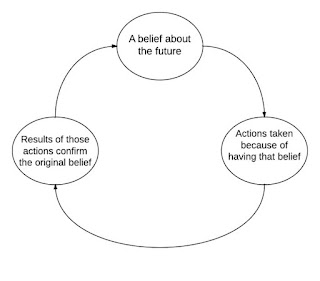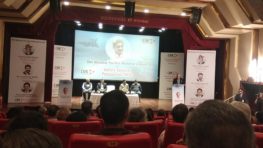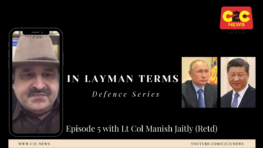
We all remember that old story of Archimedes and the Eureka moment. However not all Eureka moments need be about the water rising in the bath tub and the flash bulb in your brain going off. It can also be that moment when you hear the final gurgle of the water going down the drain leaving you low and dry, maybe with soap all over.
Often this latter Eureka moment happens when individuals or even organisations embark upon a journey where their actions and decisions are based on the prediction they have already made. This happens more often than one thinks it doesn’t happen.
Take the recent example of Ford exiting the Indian car market. Most headlines screamed about how India is a difficult market, tough market, price sensitive market and all the usual excuses doled out by those who fail. They rarely if ever want to look into the mirror.
The fact is that Ford was in India since 26 years but fact is that in 2020 they sold a total of about 45,799 vehicles of which the SUV EcoSport sold 27,181 nos. Kia of Korea started operations in India in August 2019 and by 2021 had sold 255,770 vehicles of which the SUV Seltos alone sold 178,895. In other words a Kia outsold Ford by 5.6 times in 22 months against a 26 year veteran. A Ford EcoSport costs between Rs. 8.19 to Rs. 11.7 Lakhs against a Kia which costs between Rs. 9.95 to Rs. 18.1 Lakhs. In other words a Kia is MORE expensive between 21% to 55% than Ford, yet sells 5.6 times more vehicles in a year.
India is a price sensitive market, customers want cheap – is that what we want to hear and prove ? If anything this shows the kind of balderdash that companies prefer to believe in to explain their own failure.
While one taxi driver may not be the dip stick on market feedback, they can also be very close to popular opinion. One such taxi driver, a qualified graduate, this week told me that in his view Ford is one of the safest cars on Indian roads. He said that other cars while not being totally unsafe come nowhere close to what a Ford is. Intrigued I asked him what in his opinion was the cause of this failure of Ford. He had some interesting comments to make and left me with enough food for thought though I cannot claim that he is bang on in his analysis.
He said that Ford expected Indians to accept an American product because it was better. Just because its American we must accept they are better and pay higher price. They never connected with the Indian market. They never conveyed that they were now Indian and understood us. They didn’t think they must explain anything to us about why they are better, but we must accept they are better because they are American.
He further said that Indians have so many concerns on service, cost of service, availability of spare parts and Ford according to him failed to address all these concerns adequately. Its not that they didn’t offer these services but they failed to communicate the assurance adequately. In other words his bottom line opinion was that Ford was and remained an American company all along and sat on that high horse in the way they treated the market. He felt that they were somehow disconnected and never connected at a emotional level. That last comment stuck me as a crucial aspect in India which every company that fails in India or finds India difficult does not accept as a factor for whatever reasons.
It reminded me of the tagline that Hyundai had as they made huge inroads into the Indian market chipping away at the Market Share of Maruti Suzuki even as others like Fiat (In India for 50+ years and yet failed), Peugeot, GM, floundered – “Drive home a relationship”. Their emphasis on service again helped.
More importantly they proudly flaunted the news that they sold GLOBALLY more than 1.85 Million cars – Made in India. Can you imagine the emotional connect and pride that a Indian consumer has when buying a Hyundai? Again for those who want to talk price, the Hyundai SUV in India is priced between Rs. 10.16 lakhs to Rs. 17.87 lakhs and in the year 2020 sold 121,000 units. So India wants cheap is hogwash as a argument.
Lets look at the latest advertisement released by Citroen as they enter India in 2021. You will again see the emotional/ feelings connect in the lady’s action shown in this ad.
Citroen Indian Ad
Ford rightly said they had a tough car but their communication was that the buyer/consumer needed to be tough not to settle for average. The arrogance and typical – we know better – attitude ruined the day. The responsibility of selling was shifted to the consumer, not the seller.
The consumer needed to discover more in themselves, be the bigger person – to buy a Ford.
Ford Ecosport has 11 variants and a 43% difference between low/high price, Kia Seltos has 26 variants with 82% price band and the Hyundai Creta 19 variants with 76% price band. There is a lesson in this somewhere if one were to introspect.
Again this is NOT about Ford or Hyundai or the automotive market. It is about the attitude that a global company brings to the table when dealing with the Indian market. Any company that fails to understand that “Emotions, Feelings, Relationships” do not matter, will still fail even if they sell the cheapest product. If they don’t “stoop to conquer”, don’t become a part of the society, don’t convey this connect in every action of theirs across the whole chain of connection points the chances of success are slim and none.
Global companies that fail in India or find it tough invariably start with a very clear perception and view of the Indian market. Often these are not fully articulated and feedback sought with a open mind. Instead they act like they would anywhere else and that is where they make the first mistake. They think that spending money or whatever establishes their credibility, trust and relationship – Ford spent over 2 Billion dollars – but fail to realise that spending money is only the last step in a business relationship. Investing in the relationship, the emotional connect, addressing feelings and above all establishing commitment is the real key for success. A transactional approach will never succeed in India irrespective of how much money is spent.
Instead they look for cues and evidence to support their beliefs of the future which will not come and so they take actions on that continued belief and consequently they get results that affirm their belief. Their planned failure becomes a reality, the Indian market becomes tough and in the absence of an inability of the customer to tell the truth, the issues finally boils down to money & then they come with a – We told you so – their original prophecy would be fulfilled. They walk away blaming everybody except themselves.
To share some more examples, Kellogs – we will change Indian breakfast habits, Dunkin Doughnuts – we will make Indians have Doughnuts for breakfast/ snacks, Pizza hut – we will make Indians like bland tasting food, KFC – we will sell Chicken only, Coca Cola – we will discontinue Thums Up – None of this happened, everybody failed, those who changed, succeeded big time like Pizza Hut. USA Aerospace industry – we will offer the older tech of fighter aircraft in the multi billion dollar Indian tender when tender called for the latest model – they got technically disqualified and finally lost the race to Rafael/Dassault. The list is endless.
This would be funny except that it seems every company that fails seems to want to learn from their own failure rather than the failure of others by doing the exact same mistakes. While there are other strategic mistakes that companies make, as shown in the headline picture, which only compound the error, the fundamentals are about connect, commitment and consequent trust.
Some recommended reading
Foreign Biz Failure

Author: Ravindra Vasisht can be reached on Twitter: @rvasisht
Credit: Republished with permission from author
Source: https://rvasisht.blogspot.com/2021/11/self-fulfilling-prophecies.html









